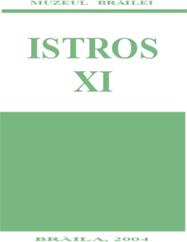Imperiu şi sacerdoţiu în Bizanţ (717-1054). I. Reflectarea lor în legislaţia imperială
Empire and sacerdotal (717-1054) how they were reflected in the imperial legislation
Author(s): Alexandra NaumSubject(s): History
Published by: Editura Istros - Muzeul Brailei
Summary/Abstract: Constantinople became the centre of the Roman-Greek world after barbarians invaded Rome and the Western Roman Empire. The Byzantine emperor, turned Christian, sought to mix the Roman laws and the Christian teachings. For instance, the legislation during emperor Justinian had quite a few “paganisms” (admitted concubinage, maintained the slavery etc.) After 843 – considered the end of iconoclasm – the Byzantine legislation experiences a genuine ideological rebirth. The emperor and the patriarch are involved in the defence, recuperation and conquest of the “goods” granted by God: the first on the material level, the second on the spiritual one. The model was Jesus, which combined the two natures: the human and the divine. Thus, the emperor and the patriarch had to govern together, as the fate of the Empire depended on their getting along together or not. Most of the changes took place in the laws regarding marriage and heritage. However, sometimes, the different interests or the personality of certain emperors or patriarchs led to open conflicts between them. At times, some of the emperors sought to limit the power and influence of the Church or even to get it under their command by means of edicts not only regulating property but also imposing dogmas and attributions to the church’s hierarchs. "1. Legislatia imperială 1.1. Introducere Constantinopolul a fost considerat de la început o operă de inspiraŃie divină; sub îndrumarea unui înger, Constantin a trasat conturul orasului căruia, asemenea lui Alexandru Macedon, i-a dat numele său. Aparitia Bizantului inaugurează o nouă lume: Imperiul Bizantin. Constantinopolul a devenit centrul lumii greco-romane crestinate; caracterul universal al Imperiului Bizantin, fondat pe mostenirea romană, se consolidează prin gândirea crestină ecumenică1. În Imperiul Bizantin au existat două puteri suverane aliate"[...]
Journal: ISTROS
- Issue Year: 11/2004
- Issue No: 1
- Page Range: 173-189
- Page Count: 17
- Language: Romanian
- Content File-PDF

